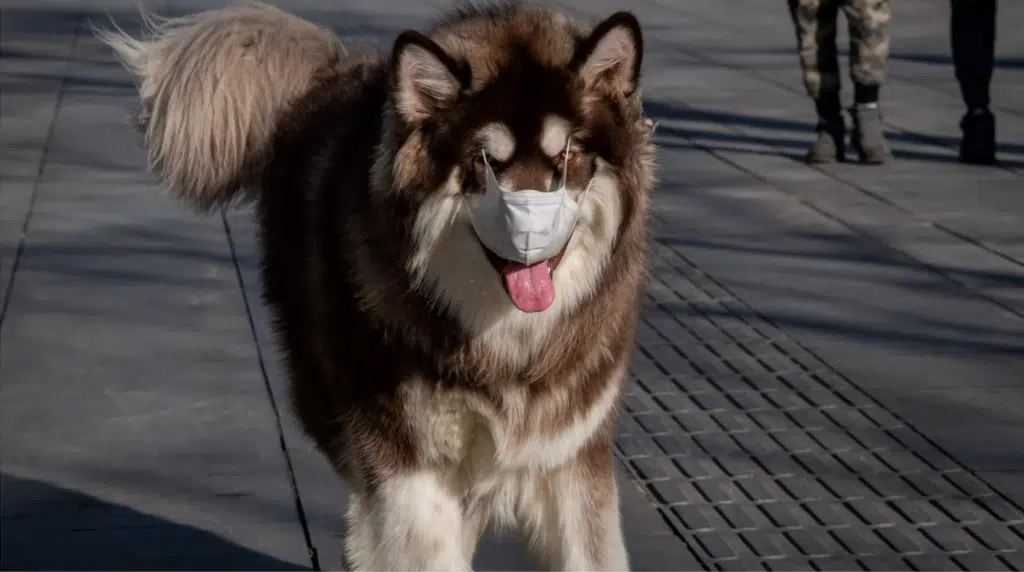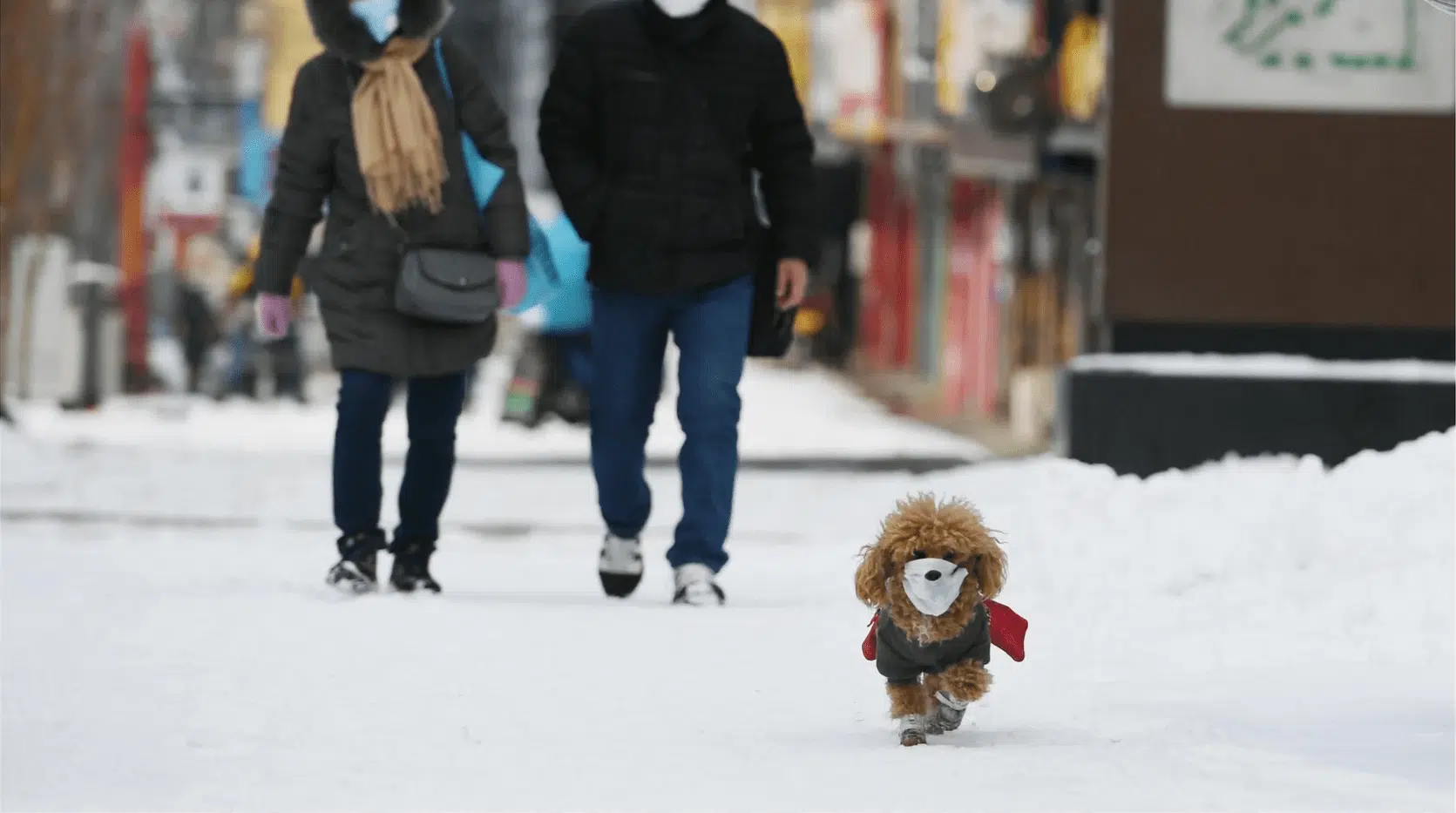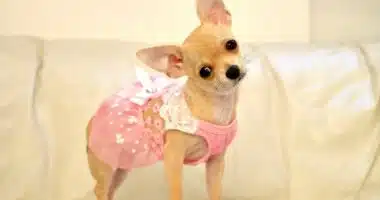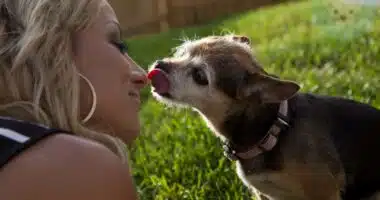Pet owners are asking for their animals to be euthanized amidst coronavirus panic, but can dogs actually catch and spread the deadly infection?
Current evidence points to no.
As misinformation grows while cases of coronavirus also rise, some Australian vets have been asked by pet owners to put dogs to sleep.
Southern Cross Veterinary Clinic in St Peters, Sydney confirmed to 10 daily it had received three calls in the past couple of weeks from customers asking about euthanising pets.
“They’re scared their dog could catch coronavirus and bring it home and be a risk to their family,” Dr Sam Kovac told 10 daily.
“I had one client say to me ‘dogs are in lock down in China, should I be putting Cheto into quarantine at home?’,” he said.
Dr Kovac said he refused to put the pets down, instead explaining to clients that the common coronavirus seen in dogs is not the same as the deadly new virus affecting humans.
The vet said he was disturbed pet owners would seek to euthanise their dogs over a disease that currently has such a low mortality rate.
“If you’d ask the same clients if they’d euthanise their grandma, they’d say no. Why have a pet and treat it differently to how you’d treat another family member?” he said.
“I think the Twitterati have a lot to answer to.”
“I am worried about people going elsewhere to euthanise pets because there are unscrupulous people out there that would profit from putting animals down.”
Canine coronavirus “is a highly-contagious intestinal disease… specific to dogs, both wild and domestic,” according to PetMD.
“The coronavirus replicates itself inside the small intestine… in adult dogs, the majority of infections will be unapparent, with no symptoms… sometimes, a single instance of vomiting and a few days of explosive diarrhea may occur,” the PetMD site says.
The World Health Organisation said current evidence suggests COVID-19 is unable to spread from humans to dogs, but advised pet owners to wash their hands after touching animals.
In a statement last month, NSW Chief Health Officer Dr Kerry Chant said there have been multiple incorrect and alarmist social media posts about the disease.
“While the 2019-nCoV may have come from animals, domestic pets do not pose a risk of transmission in Australia,” Dr Chant said.
“I ask the public to be aware of the facts about the novel coronavirus and take a moment to investigate unverified claims before they share them with others.”
Dr Kovac told 10 daily people shouldn’t stop taking their pets to dog parks over coronavirus fears.
“If my dog Clara had been infected with [COVID-19], I would isolate her, I would wear protective equipment while interacting with her and feeding her and isolate her for a few weeks,” he said.
“There’s a good chance that if she catches it she’ll recover.”
Misinformation over coronavirus in pets was sparked by reports a dog in Hong Kong had tested “weak positive” for the virus.
But after spending two weeks in quarantine, the same dog tested negative to COVID-19 several times.
Asking for pets to be put down, despite the low prevalence of coronavirus in Australia, has been driven by mass panic but also the way society views pets as “disposable”, an expert in animal welfare policy told 10 daily.
“It is related to the hysteria of the same type that’s sending people out to buy toilet paper, but it points to a larger problems,” Senior Lecturer at the University of NSW Dr Siobhan O’Sullivan said.
“We will put down hundreds of thousands of animals every year. There’s a big increase in the number of animals put in pounds around Christmas when people go on holidays,” Dr O’Sullivan said.

“Some of it comes from people renting for short periods while they’re studying and then moving out of the country. There is this view that pets are transitory,” she said.
To combat the rising numbers of people purchasing animals only to abandon them, puppy farms should be shut down, Dr O’Sullivan said.
“[We should] rule out puppy farms. A lot of people argue we should not have any animals sold in pet stores. We should make it more difficult for people to own animals.
“But it’s also about education and changing cultural and social values and [starting to view] pets as part of your family.”
The confusion comes as several greyhounds near Lara in Victoria and two greyhounds in NSW’s northern rivers also tested positive to the distinct strand of canine coronavirus.
The outbreak started in Western Australia in December and later spread to Queensland, Northern Territory, South Australia, NSW and Victoria, the GRV said in a statement on Wednesday.
Greyhound Racing Victoria said greyhounds entering Victoria will now be quarantined for two weeks before they can enter races, with the governing body also launching a taskforce to deal with the virus.
“As GRV continues to monitor the illness it is recommended there are restrictions on the movement of dogs kennelled in Victoria and which travel interstate to race,” the greyhound governing body said.






